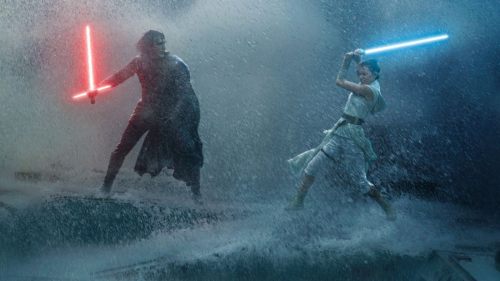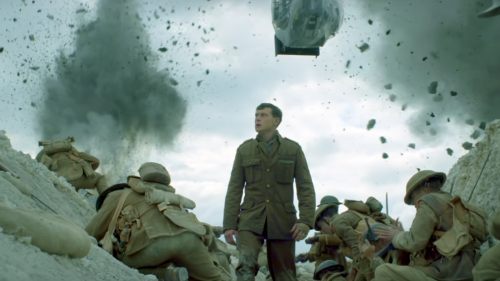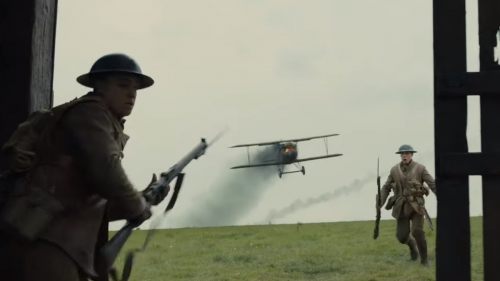1917 Review: War On Rails
There’s been a lot of (unfair, in my opinion) handwringing over what kind of films qualify for the nebulous honor of being “cinema,” with certain brands and genres of movies coming under fire for being more akin to theme park rides than actual works of human emotion and pathos. Not to reopen any Scorsese-sized scars that have healed over in the past few months, but this perspective feels reductive and, frankly, a little petty, especially in light of a film like 1917, which is undoubtedly going to qualify in many people’s minds as one of the best films and cinematic experiences of the year. And yet, it’s not really the characters or story that make the film special: it’s the technical presentation, the aspects that make the film visceral and, well, make it feel like a ride.
Set at one of the most intense periods of World War I in northern France, 1917 follows a pair of lance corporals, Schofield (George MacKay) and Blake (Dean-Charles Chapman) as they are sent on a mission to warn a fellow British battalion of an ambush set to overtake them should they attack the following morning. The duo must travel across enemy territory, encountering booby traps, enemy soldiers, and natural hazards that block their forward progress, lest the attack go forward and 1600 men die in the process.
Schofield and Blake exemplify archetypal pessimism and optimism, respectively, creating a sense of mildly antagonistic camaraderie between two characters who truly care for one another. Their triumphs and heartbreaks are palpable and real, but it’s hard to consider either of them especially deep or multidimensional. Rather, they are the vehicles for the audience to experience the horrors, atrocities, and heartbreaks of war, and though the film does frequently slow down to allow moments of intense emotion, it also doesn’t prioritize these moments, content to rely on universally relatable emotional beats rather than develop internal conflict to complement the external.
That’s because the conceptual appeal of 1917 is almost entirely external, as shown through the combined efforts of Sam Mendes’ direction and Roger Deakins’ cinematography. Filmed to convey the illusion of one continuous take, the film provides a visceral experience by rarely leaving Schofield’s side or perspective, giving the impression of a single continuous event as lived by these two soldiers. It’s an impressive feat of filmmaking, diving us into the depths of a living hell while seamlessly hiding the fact that a camera is even present at all. There are numerous shots that are breathtaking in their composition and seeming impossibility, particularly when Deakins gets to play with fiery oranges, twilit purples, smoky shadows, and focused character moments amid a crowded and chaotic frame. This is clearly his movie, so even when the emotion of a scene feels played out for having been explored in countless war films before, the way in which it is conveyed is wholly unique and stunningly rendered.
The themes explored in 1917 are the standard toolkit for cinematic wartime misery – hardship, grief, duty, the presence of beauty in small moments when the rest of the world has gone to shit – and there isn’t much to make Schofield and Blake stand out from the multitude of period soldier protagonists that proceeded them. This is a film more about the mission than the people who carried it out, and while the technical delivery of that mission as a harrowing and empathetic experience is compelling and impressive, it also belies the ethos of a production more focused on aesthetics and setpieces than character or narrative. And, for the record, that’s perfectly fine. But let’s not delude ourselves into thinking that technical mastery elevates it to any mythical higher form of cinema. If anything, 1917 shows us that a good movie can be made by emulating the feeling of a war video game, treating its scenes like levels and its protagonists like avatars. I'll be the last person to say that video games aren't art, but it's interesting to note that the reasons 1917 might be considered laudable are the same reasons one might be engaged in the violent spectacle of a first-person shooter. But you also don't get to play a movie. You're just along for the ride.



